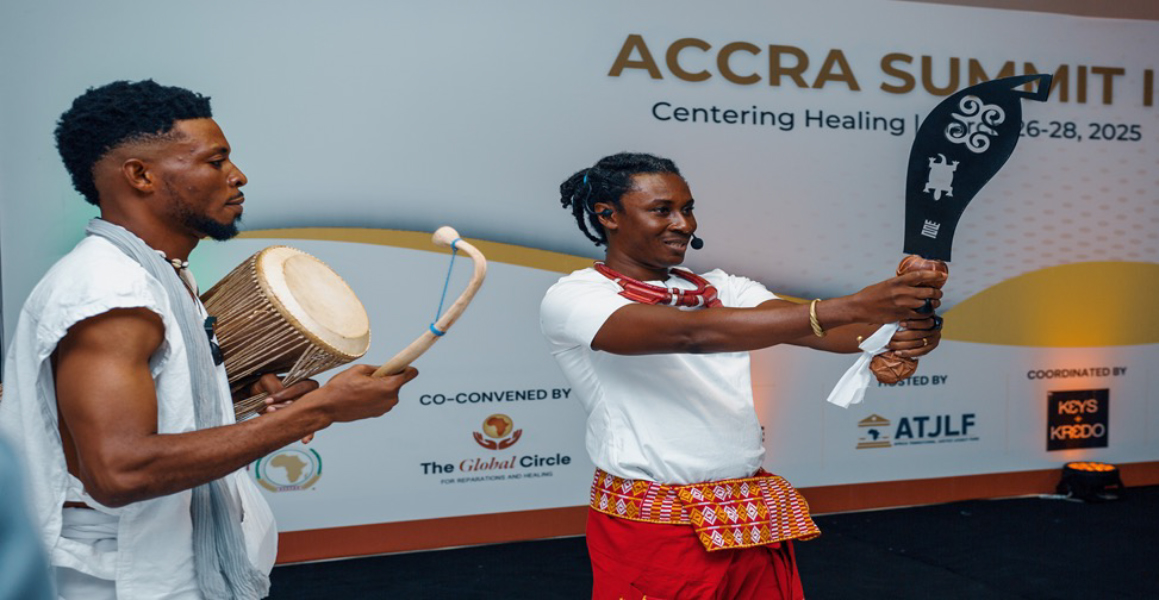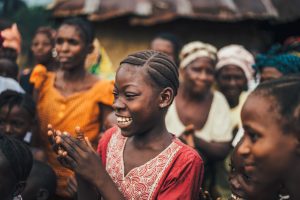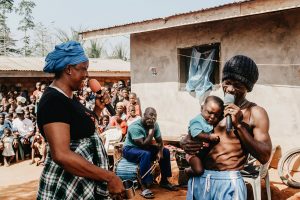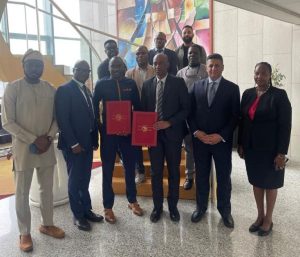In partnership with the African Union (AU) and Justice and Repair (J&R), the Global Circle for Reparations and Healing (GCRH) co-convened the Accra Summit II, a historic gathering under the theme, ‘Centering Healing for Africans and the Global African Diaspora in the Context of the African Union Theme of the Year 2025 on Reparations’. The summit, which was held from March 26 to 28 in Ghana, recognized healing as a critical pathway to achieving reparatory justice and concluded that the struggle for reparations is not just about rectifying past injustices but also about ensuring justice and healing in the present and for future generations.
Participants came from across Africa, the Caribbean, North America, South America, and Europe to a warm, beautiful resort in Ghana – a country with a history of freedom movements. From being the first country in sub-Saharan Africa to gain independence from colonial rule to becoming a sanctuary and home for the global African diaspora seeking to connect with their ancestral roots, Ghana was a worthy host of this historic summit.
The summit brought together a dynamic mix of participants, including African Union representatives, the government of Ghana, youth and elders, artists, leaders in philanthropy, civil society, and representatives from African think tanks and Pan-African media and academia. With a mix of pure, elegant cultural performances and sessions of intellectual discourse, the summit delivered its outcomes in a fine blend of creativity and intellectualism.
Held under the guiding principles of Ubuntu and Harambee, the summit built on the foundational work of the Accra Summit I, expanding the conversation from justice and reparations to deliberate on how healing can take center stage in the global reparations movement.

Speaking at the summit, Her Excellency Ambassador Selma Malika Haddadi, Deputy Chairperson of the African Union Commission, represented by Ms. Angela Naa Afoley Odai, Head of the African Union Citizens and Diaspora Organization, stated that the atrocities Africans have suffered historically are not just acts of the past but have real consequences today.
One of the outcomes of the summit was the collective reckoning with our shared history—especially the unresolved trauma of the trans-Atlantic slave trade and the divide between Africans on the continent and those in the Diaspora. The summit courageously addressed the painful, often avoided question: To what extent were Africans complicit in the European trafficking of Africans—and under what circumstances? It was found that the trafficking of Africans was not conceived or led by Africans, neither did they benefit from it. It was a brutal, profit-driven system orchestrated by European powers, with devastating consequences that are still evident today. The complicity of institutions like the Catholic Church, which sanctioned enslavement through the Papal Bulls, was a key highlight of the conversations held. It was stressed that a full, honest account of history is indispensable for the healing process.
The summit called for healing to be centered as an important part of the enforcement of reparatory justice. Participants emphasized the need for African-centered models of healing drawn from indigenous wisdom to reconnect people with their dignity and heritage as they navigate their journeys from unhealed behavior to healed behavior.
The summit didn’t only just look back at the past, it looked forward with clarity and hope at the potential for healing. In a bold and unified call to action, participants at the Accra Summit II called for African Heads of State, global civil society, and people of African descent everywhere to align behind a continental and global agenda for healing anchored in justice, unity, and historical truth.
Media Enquiries
Kamm Howard kamm@reparationsunited.org
Dr. Joy DeGruy joy3adl@gmail.com
Dr. Enola Aird egaird@gmail.com
Dr. Ron Daniels ronmae@aol.com
Follow the conversation online: #AccraSummitII #CenteringHealing #AccraSummit



